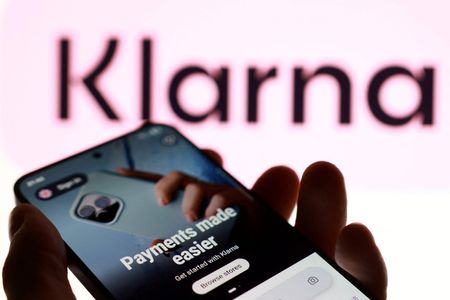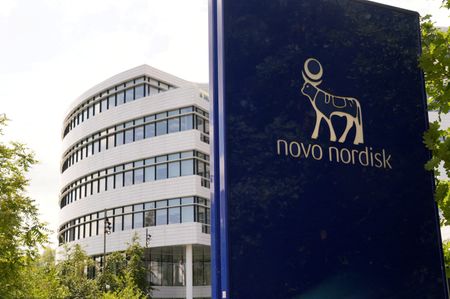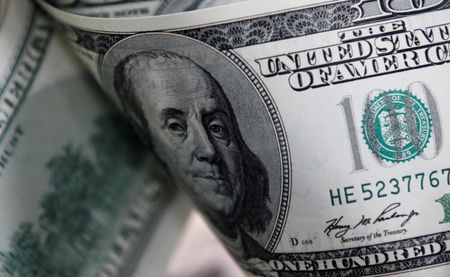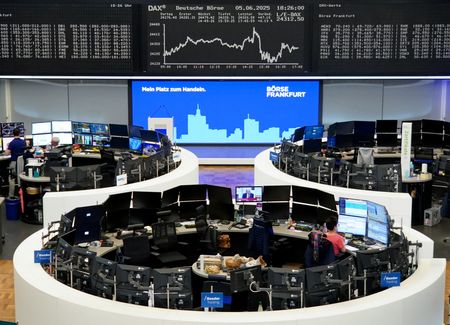By Ateev Bhandari and Harshita Meenaktshi
(Reuters) – Buy-now, pay-later lender Klarna said on Tuesday it has raised $1.37 billion in its U.S. initial public offering, setting the stage for a market debut that could set the trend for high-growth fintech listings.
The Sequoia Capital-backed Swedish company and some of its existing investors sold 34.3 million shares at $40 each, above the targeted range of $35 to $37.
Earlier in the day, Reuters had reported, citing two sources, that the IPO values Klarna at $15.11 billion — a significant drop from the more than $45 billion valuation it notched in 2021 after a rapid ascent as a BNPL leader.
Its valuation dropped to $6.7 billion in 2022 amid rising interest rates and inflation.
The offering was oversubscribed by 25 times, a person familiar with the matter had told Reuters.
Klarna is headlining companies ranging from crypto to consumer that are aiming to go public in New York this week, as a rallying stock market and blockbuster debuts ease tariff worries and rekindle investor interest in IPOs.
The company, which has been planning a New York listing for years, paused its efforts in April as sweeping U.S. tariffs on its trading partners resulted in choppy global markets.
Founded in 2005, Klarna was profitable until its U.S. expansion in 2019, just ahead of the online shopping boom sparked by the COVID-19 pandemic.
While its user count and gross merchandise value continue to expand in double digits, profitability remains a challenge.
Losses widened to $52 million in the quarter ended June 30 from $7 million a year ago, while revenue rose to $823 million from $682 million.
“While the market is open again to fintech listings, companies will be judged quickly on their ability to balance growth with profitability in a tougher macro backdrop,” said Rudy Yang, senior analyst at PitchBook.
The company also operates as a digital-first neobank. Peer Chime’s shares popped 59% in its Nasdaq debut in June, although they trade below the issue price, as of last close.
However, analysts said Klarna’s brand power might help secure its footing among fintechs.
“The sector is highly competitive and rapidly evolving, and brand recognition, where Klarna remains strong, is often as critical as (the) business model,” said Kat Liu, vice president at IPO research firm IPOX.
DEMAND UPTICK
U.S. consumer spending has held up despite sticky inflation, labor market cracks, and slowing income growth.
Alternative payments services such as Klarna, which ease the immediate financial burden by allowing shoppers to split purchases into smaller, interest-free installments over weeks or months, have witnessed stable demand.
For the 12 months ended June 30, Klarna earned 75% of its revenue from transaction and service-based fees — the majority of which came from merchants on its network — the lowest as a share of total revenue for the same period since 2022.
The share of interest income in this period rose to 25%.
“Since Klarna’s BNPL model depends on both transaction volume and repayment rates, lower spending reduces merchant fee capture while also raising the risk of credit losses,” Liu said.
Goldman Sachs, J.P. Morgan, and Morgan Stanley are the joint book-running managers. Klarna will start trading on the New York Stock Exchange under the symbol “KLAR” on Wednesday.
(Reporting by Ateev Bhandari, Harshita Meenaktshi and Arasu Kannagi Basil in Bengaluru; Editing by Sriraj Kalluvila, Arun Koyyur and Alan Barona)











